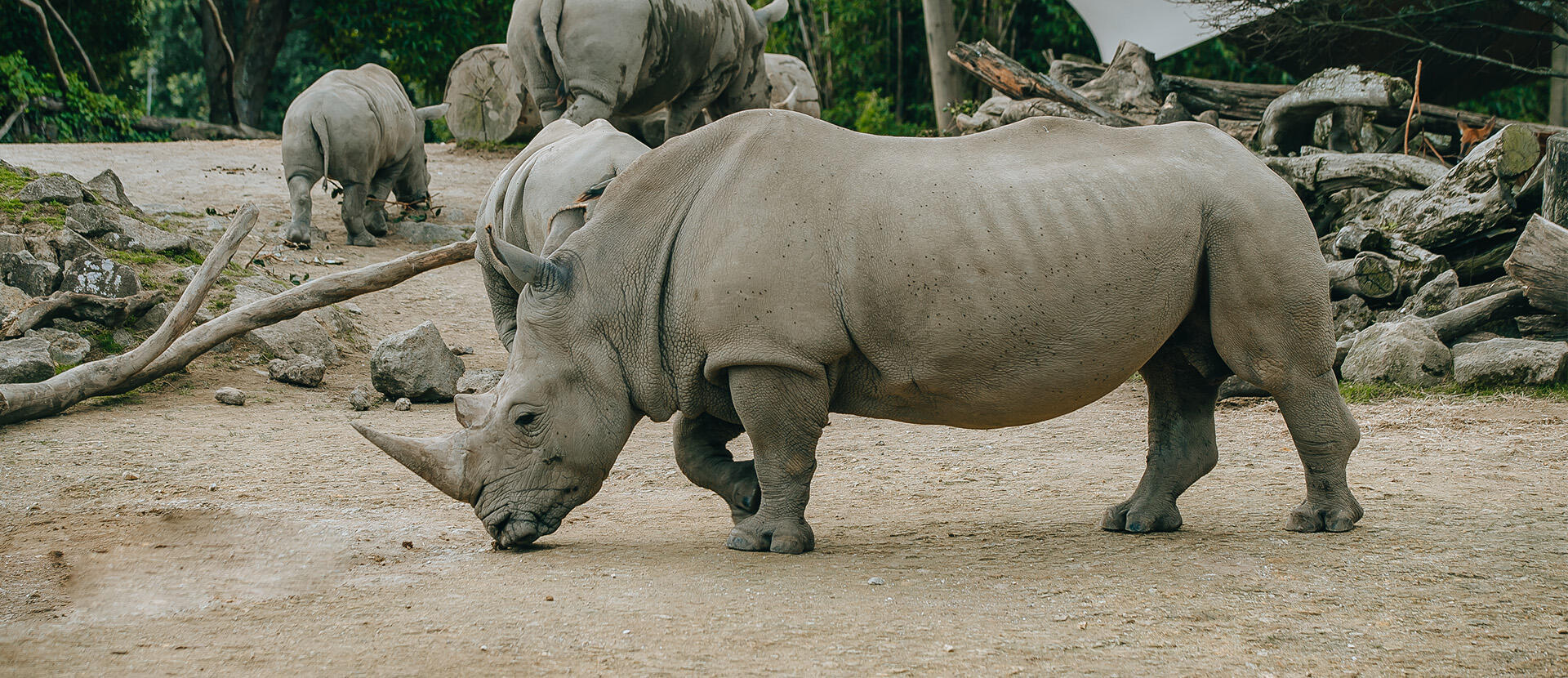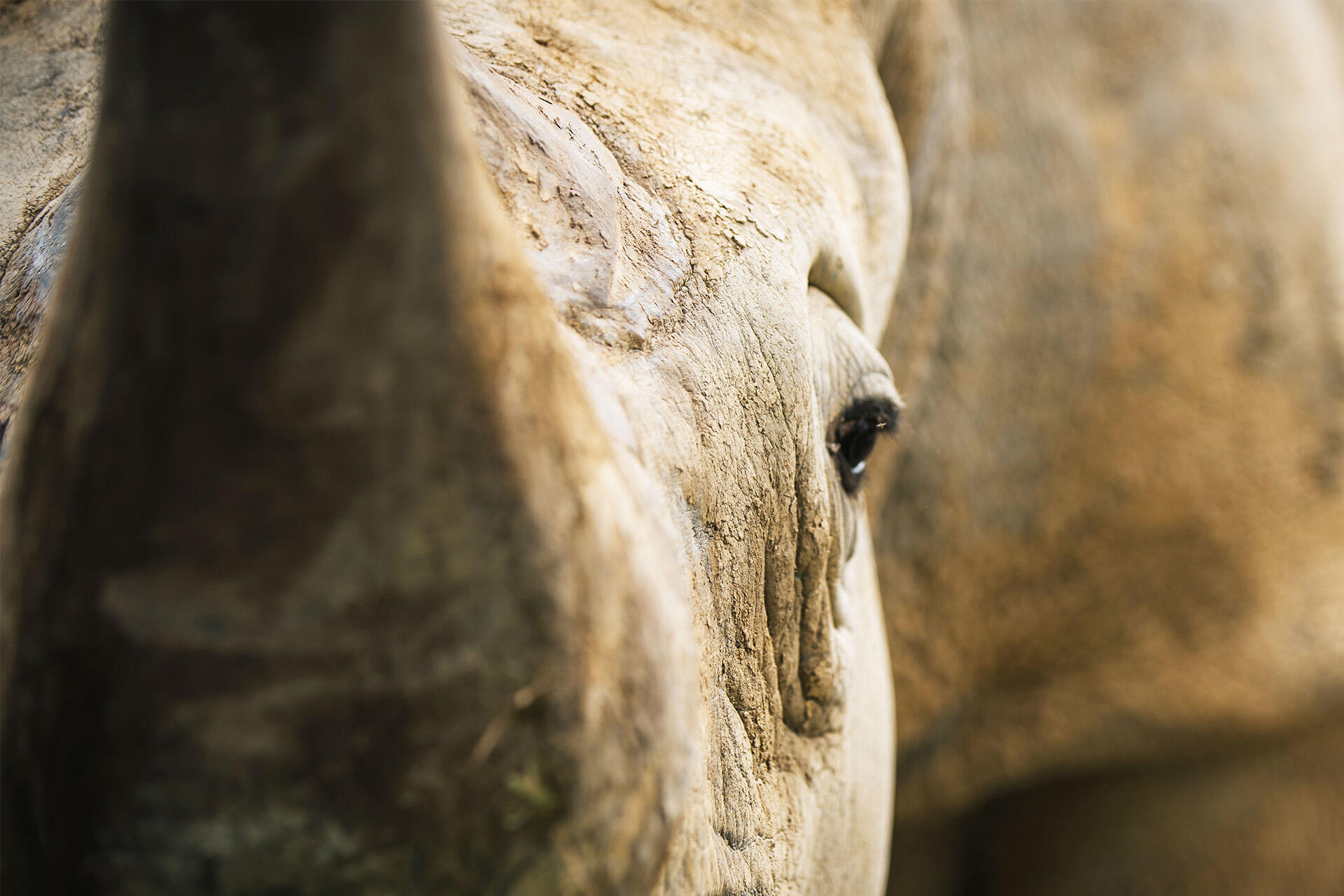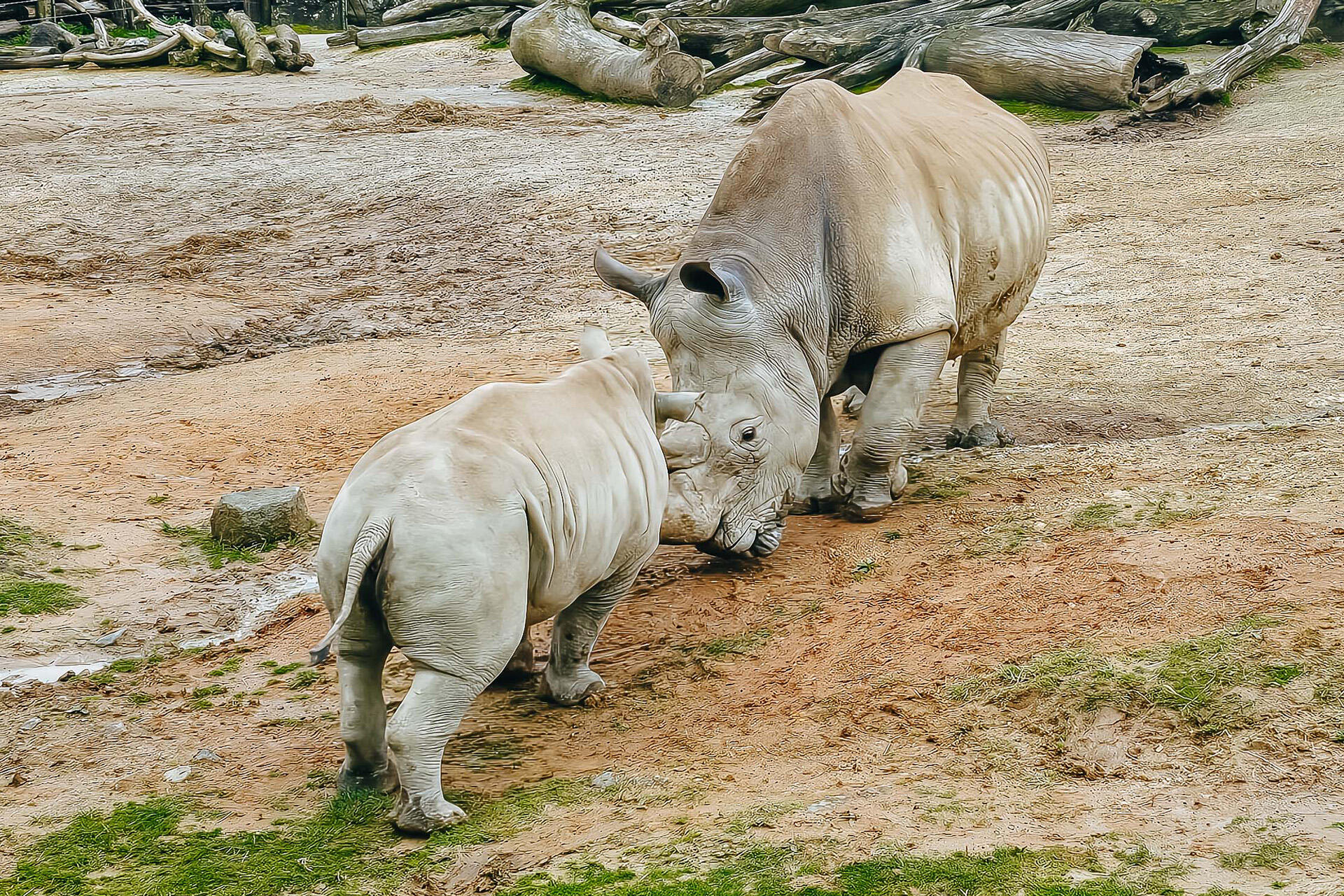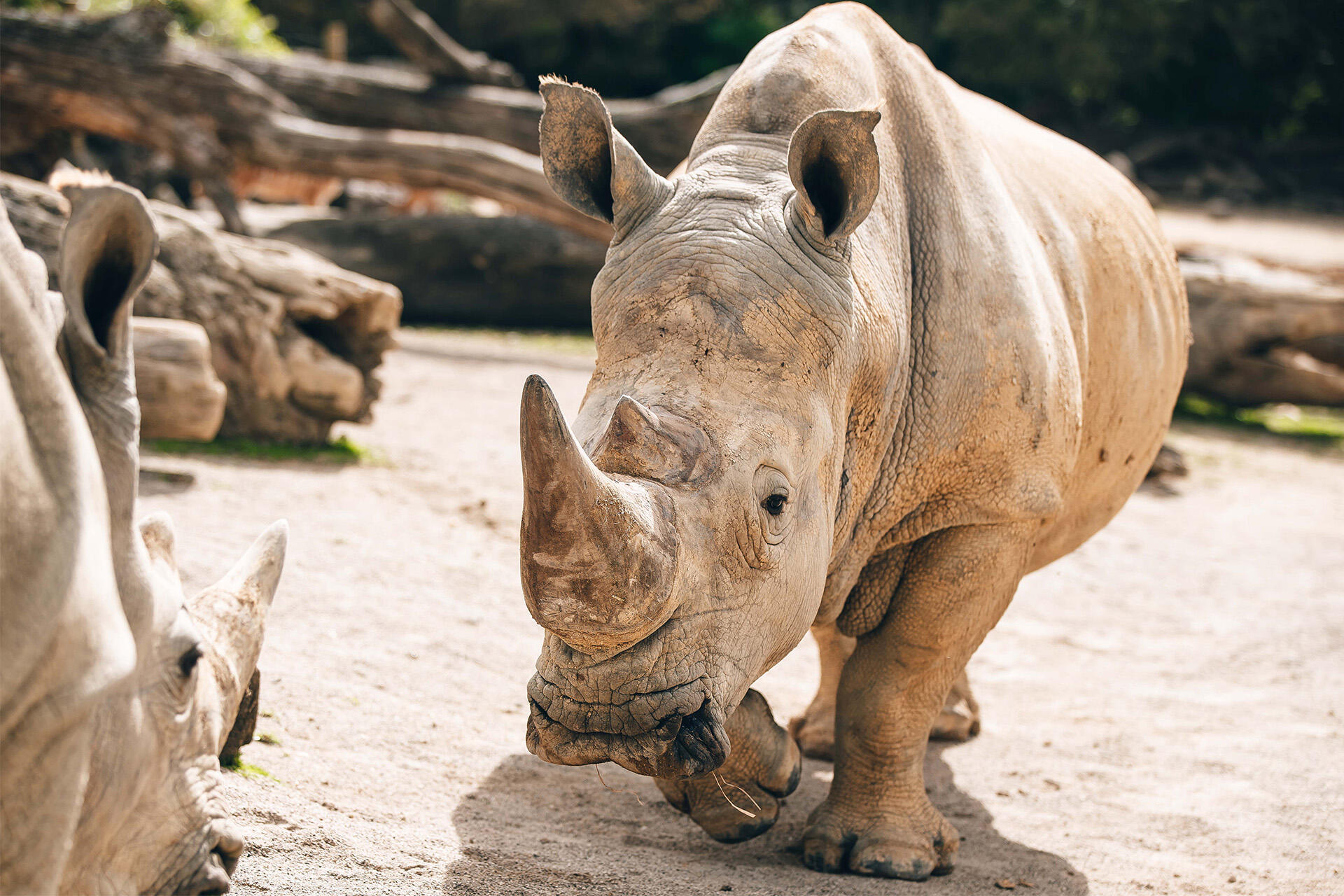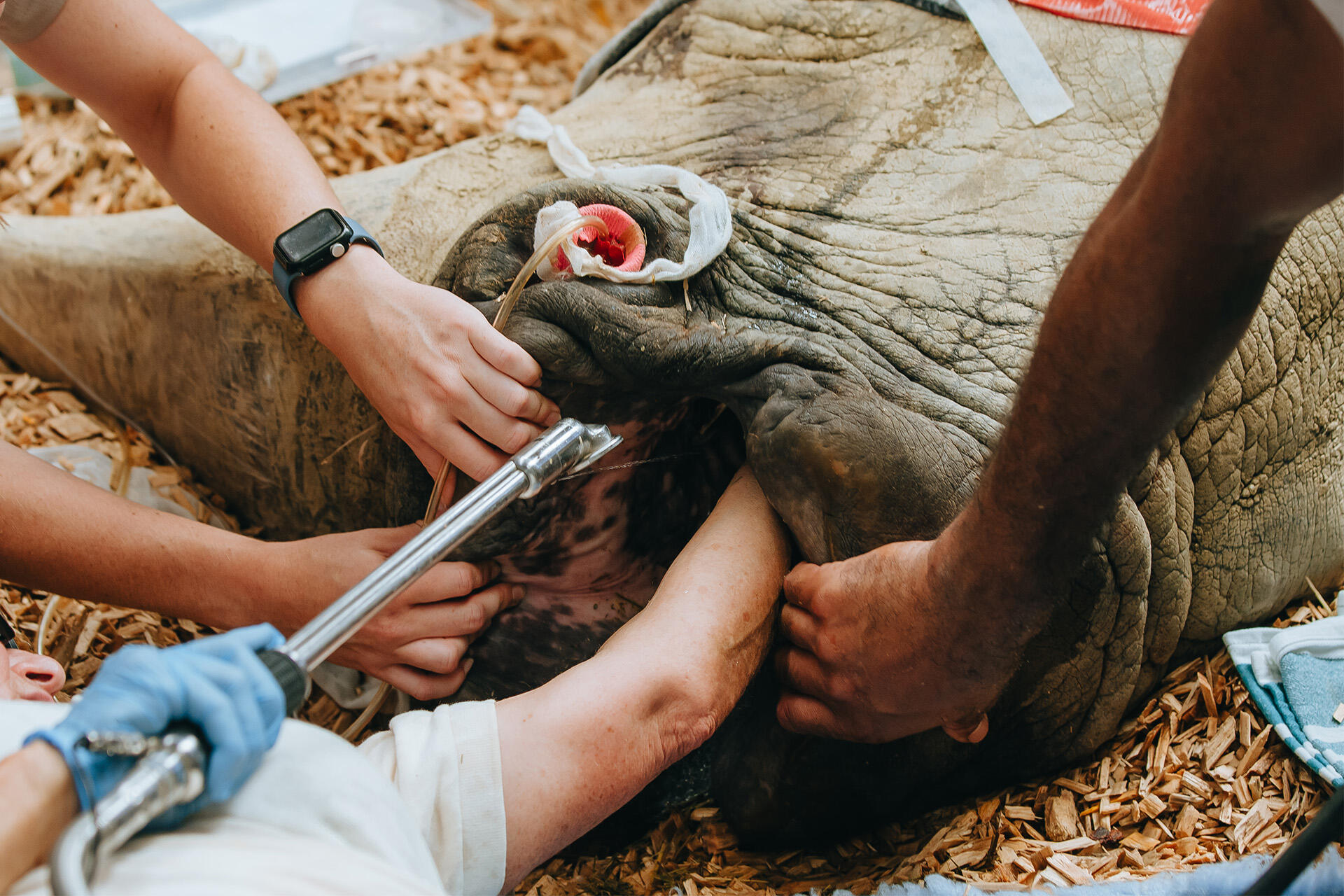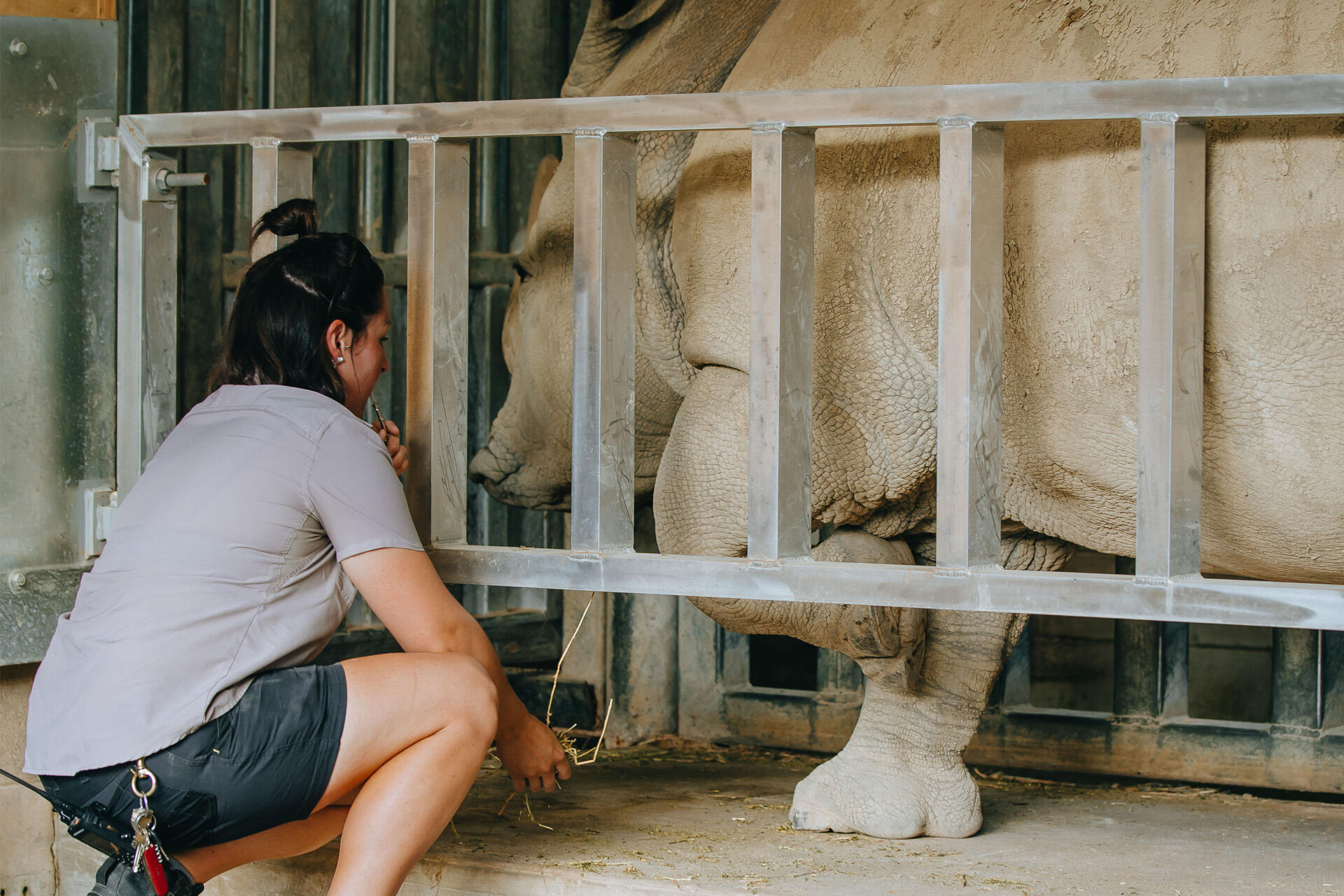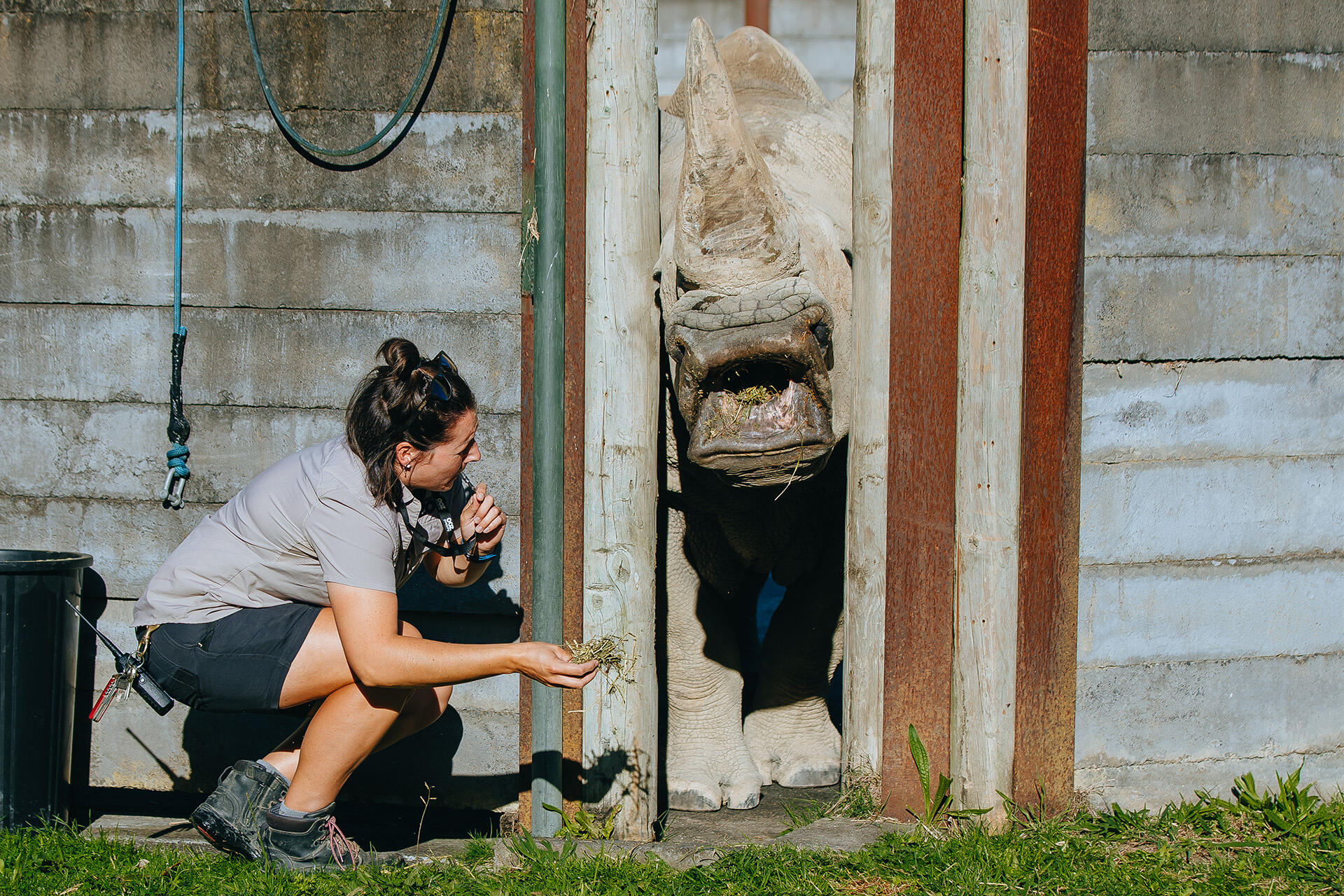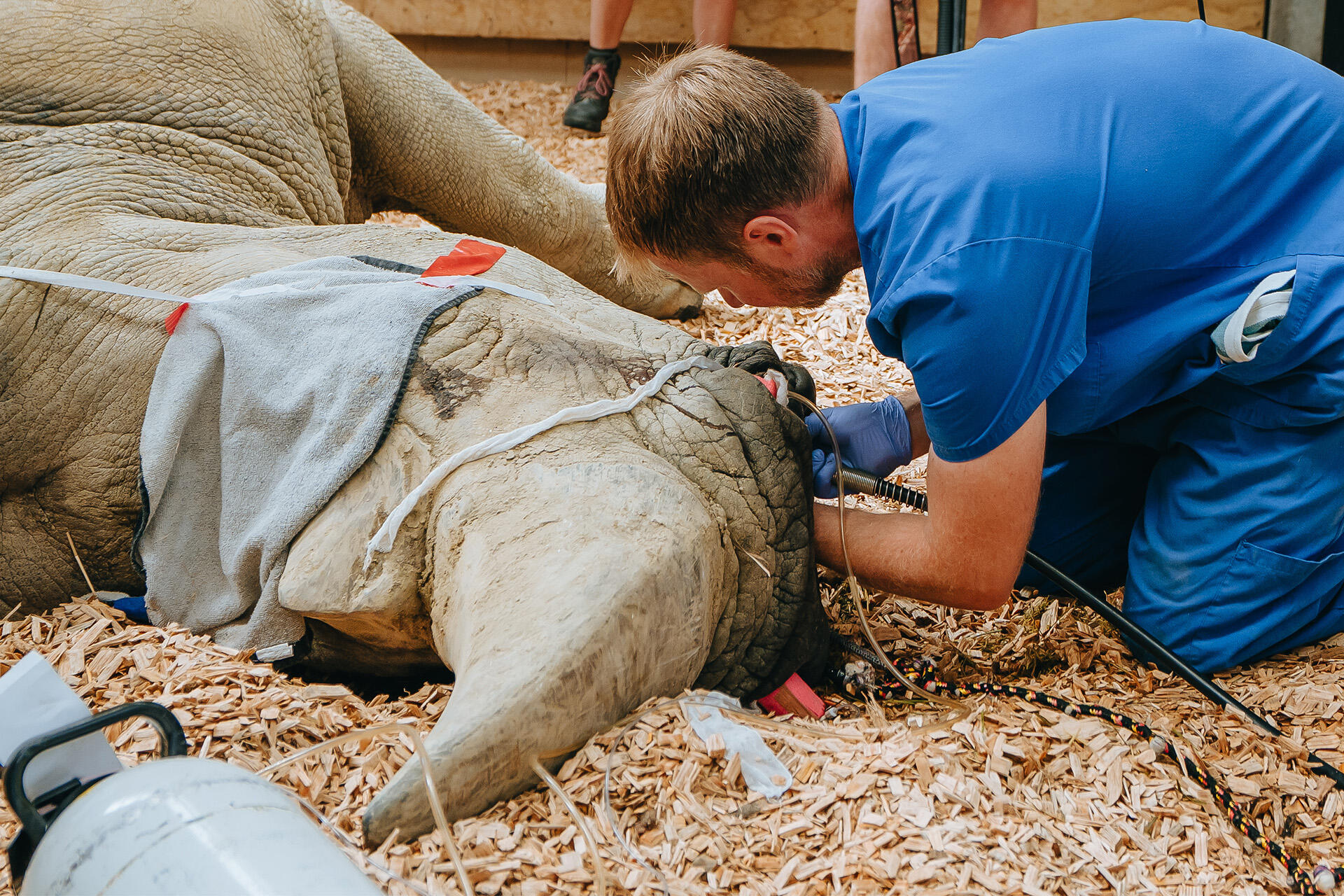White rhino can live up to 35-40 years of age, which means Zambezi is considered geriatric, and therefore receives extra care and attention. As part of the amazing care he receives, our keepers engage Zambezi with weekly weigh-ins, body condition checks, blood tests and dental exams to closely monitor his health and wellbeing.
Rhinos eat grass and, like other ungulates, older animals often develop dental disease. This impacts their ability to chew their food, reducing their ability to extract full nutrition from the plants they eat. For many years now, we have been managing his dental care with the assistance of a veterinary dentist.
Monitoring dental health is a primary focus for Zambezi going forward as he has had two teeth removed (one was loose and removed several years ago, and the second was removed in the most recent procedure), and some remaining teeth are worn and showing signs of deterioration (common in older rhino and some people get similar issues too!).
Zambezi has recovered well from the recent procedure and is currently doing well, but this is an area of his health that we need to keep a close eye on.
For the past 18 months, ungulates keeper Georgie has been undertaking a faecal fibre length study to understand how Zambezi is digesting his food compared to the rest of the crash. Every fortnight, a sample of faeces is collected, sieved in water, and 10 of the longest hay fibres are chosen. The average from these fibres are then plotted on a graph to see how this tracks over time. From this study we can confirm Zambezi needs extra help with his digestion, and our keepers are offering chopped hay, as well as standard length hay, to help make it easier for him to chew and digest his food.
Zambezi is the largest of our rhino crash and can often be seen soaking up the sun, see if you can spot him when you visit!


